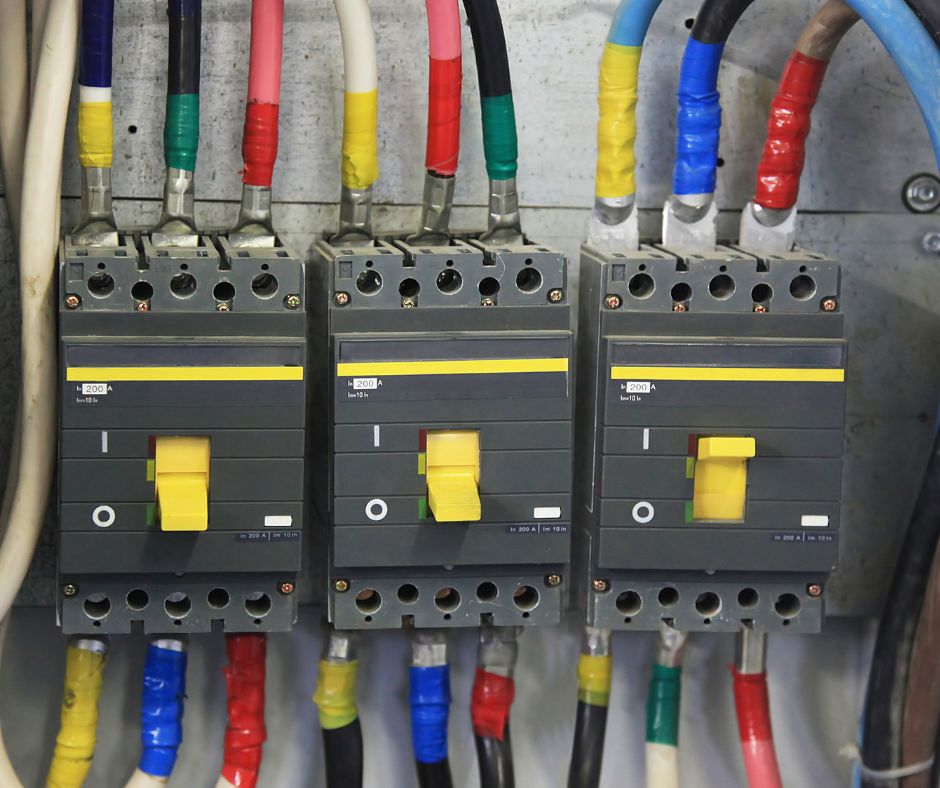Discover the Essential Benefits of Electrical Insulation Tape for Electrical Safety and Efficiency
Electrical insulation tape plays a pivotal role in safeguarding and insulating various types of electrical wires and cables. Often referred to as insulating tape, this indispensable tool is crucial for both professional and residential applications. It effectively prevents electrical shorts while providing protection against moisture, dust, and physical wear. This functionality is vital for maintaining the integrity and safety of electrical systems. By understanding the significance of electrical insulation tape, you can avoid potential hazards and foster a well-organized workspace that enhances productivity and safety in all your electrical projects.
Electrical insulation tape is available in a diverse range of sizes, lengths, and colors, with materials tailored for specific applications. These variations contribute to the effectiveness of insulation while facilitating easy identification and organization of wires through color-coding. Utilizing different colors not only simplifies electrical tasks but also enhances your efficiency and organizational skills, allowing you to quickly locate and manage wires during any electrical project.

Understand the Conditions Leading to Electrical Tape Melting: Essential Insights for Safety
Electrical tape can indeed melt under certain conditions, and understanding these factors is crucial for safe usage. In this section, we will analyze the temperature thresholds associated with electrical tape, identify the circumstances that may lead to its melting, and highlight key signs of overheating that should be monitored. Grasping these variables is essential for ensuring the safe and efficient use of electrical insulation tape across various tasks, ultimately safeguarding your projects.
Maximize Electrical Tape Performance by Understanding Its Temperature Limitations
Like many materials, electrical tape has defined temperature limitations that are crucial for safe operation. Standard types of electrical tape can typically tolerate temperatures of up to approximately 80°C. However, more robust, heavy-duty options are available that can withstand slightly higher temperatures. Exceeding these limits compromises the structural integrity of the tape, potentially leading to failure and significant safety hazards.
As temperatures rise and approach these upper limits, the effectiveness of electrical tape can start to diminish. This degradation may present as melting, a sticky texture, or, in severe cases, a complete breakdown of the tape. Being aware of these temperature limitations is critical for ensuring safety and efficiency during electrical tasks, allowing you to complete your projects without unnecessary risks and complications.
For environments subject to extreme temperatures, it’s advisable to consider using high-temperature variants. For instance, heat-resistant tape, made from materials such as fiberglass or silicone, can endure temperatures of up to 200°C or more, making it an ideal choice for applications exposed to intense heat.
Also Read: Keep Your Pets Safe Around Electricity
Request Your Free Quote Today!
Contact Us for Complimentary Electrical Inspections

Identify Key Factors Contributing to the Melting of Electrical Tape
The melting of electrical tape can result from multiple factors, primarily stemming from exposure to excessive heat. Understanding these causes is essential for safe and effective usage. Below are several common reasons contributing to the melting of electrical tape:
Recognize the Impact of Excessive Heat on Electrical Tape Performance
The primary cause of electrical tape melting is exposure to high temperatures. If the tape is situated near hot surfaces, engines, or any components that emit considerable heat, it may start to soften, bubble, or even completely melt. Additionally, electrical systems, such as power circuits, often generate more heat than the tape is designed to handle, particularly during overloads or malfunctions.
Therefore, when using electrical tape in proximity to high-temperature conditions, it is critical to check the temperature ratings of the tape to prevent potential failures and protect your project from risks.
Investigate Environmental Factors Accelerating Electrical Tape Deterioration
Electrical tape is not designed to last indefinitely. Over time, both the adhesive and the tape material can degrade, especially when exposed to UV radiation, moisture, or harsh environmental conditions. This degradation can significantly diminish the insulating properties of the tape. As the tape ages, it becomes more susceptible to melting at lower temperatures than it would normally withstand.
Regular wear and tear are part of the lifecycle of electrical tape. Thus, it is essential to routinely inspect the tape for signs of aging or damage to ensure continued safety and optimal performance in your applications.
Understand the Risks Associated with Improper Electrical Tape Application
Applying electrical tape under less-than-ideal circumstances can lead to premature failures. For example, if the tape is wrapped too tightly, subjected to friction or heat, or overstretched during installation, its performance can be compromised. Furthermore, wrapping tape around sharp edges or on components that are prone to overheating, like light bulbs or electrical outlets, can lead to issues unless the tape is specifically rated for those conditions.
Also Read: 10 Ways to Save On Power And Energy Costs
Spotting Indicators of Overheating in Electrical Tape
If you suspect that your electrical tape is overheating, there are several crucial signs to watch for. Here are the most common indicators that your tape may be melting or experiencing excessive heat:
Recognize a Sticky or Tacky Texture as a Warning Sign of Overheating
A noticeable change in texture, especially a sticky or tacky feel, is often one of the first signs of melting electrical tape. This alteration can act as an early warning sign of further degradation, indicating that the tape may no longer offer adequate insulation or protection for your electrical connections.
Detecting Discoloration as a Sign of Heat Damage
Overheated electrical tape may exhibit significant discoloration. You may notice a shift from its typical black or colored appearance to shades of brown, dark gray, or even black. This change occurs as heat causes the tape’s PVC or other materials to decompose. Early identification of this issue can prevent further damage to your wires; if left unaddressed, it could lead to melting or even create fire hazards.
Observe Bubbling or Distortion as Symptoms of Excessive Heat Exposure
If electrical tape begins to bubble, distort, or warp, it indicates that heat is adversely affecting its structure. This typically occurs when heat causes the adhesive or plastic layers to separate or degrade. The surface may appear wavy or uneven, signaling that temperatures are exceeding safe limits. Upon noticing these bubbles, it is advisable to consult your electrician for a thorough evaluation to ensure safety.
Identify a Burning Odor as a Serious Warning Signal
A burning smell coming from electrical tape is a critical warning sign that should never be ignored. This odor may resemble melting plastic or burning rubber. When excessive heat breaks down the adhesive, the resulting fumes can be alarming. Do not overlook this warning. If you detect a burning smell, it could mean the tape is on the verge of melting or even igniting, signaling an urgent need for action.
Visible Smoke is a Major Warning Sign of Tape Failure
Seeing smoke emanating from electrical tape is a clear indication that temperature levels have significantly surpassed what the tape can tolerate. Smoke is a strong signal that the tape has likely begun to melt or may even be igniting. At this critical juncture, it is essential to turn off the power source immediately and seek assistance from your electrician to prevent potential hazards.
Remember – Never use water to extinguish an electrical fire. Instead, use a CO2 fire extinguisher for optimal safety.
Essential Safety Steps to Take if Electrical Tape Melts
If your electrical tape melts, the first and foremost step is to disconnect any power sources or turn off any equipment to ensure safety.
Prioritizing safety is vital, as electrical hazards can pose severe risks to both life and property.
Once you have ensured that the area is safe, it is critical to consult your electrician for expert guidance. If a professional installed the tape, they may need to inspect the area for any underlying electrical issues that could have contributed to the problem, ensuring comprehensive safety and functionality in your electrical systems.
Explore Alternatives to Electrical Tape for High-Temperature Applications
If you frequently work in environments where temperatures exceed the limitations of standard electrical tape, it is wise to consult your electrician about suitable alternatives. Here are several options worth considering:
- Heat-resistant silicone tape: This type of tape is specifically engineered to endure high temperatures and is ideal for applications where heat poses a significant concern.
- Fiberglass tape: A durable option capable of withstanding extreme temperatures without sacrificing performance or safety.
- Mica or ceramic insulation: For the utmost level of heat protection, specialized insulations like mica or ceramic are excellent choices for demanding applications.
Critical Insights into the Risks of Melting Electrical Tape
In summary, electrical tape can indeed melt, mainly due to excessive heat exposure. Understanding the temperature limits of your tape and ensuring you choose the right type for your specific application are crucial steps in preventing potential issues and maintaining safety.
By remaining vigilant about signs such as discoloration, stickiness, or unusual odors, you can take swift action to mitigate risks. Always prioritize safety, and do not hesitate to contact your local electrician for expert advice when necessary.
Request Your Free Quote Today!
Contact Us for Complimentary Electrical Inspections

The Article: Does Electrical Tape Melt? Here’s What You Need to Know first appeared on https://writebuff.com
The Article Electrical Tape Melting: Essential Facts You Should Know Was Found On https://limitsofstrategy.com
References:
Electrical Tape Melting: Essential Facts You Should Know

